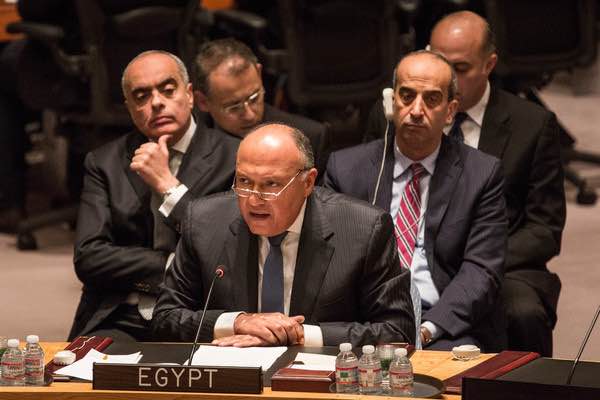UNESCO recommends Kosovo membership despite Serbian disapproval
Kosovo could become the next UNESCO member. The UN cultural body has…
Figueres: climate change is ‘a shared responsibility’
Can this week's climate talks in Bonn come up with a draft…
‘Climate Sail’ educates on impacts to oceans
In the lead-up to the UN climate summit in December, a boat…
Egypt elected as UN Security Council non-permanent member
Government efforts to acquire membership
Egypt calls on increasing efforts to secure women in conflict zones
The percentage of girls in secondary education in conflict countries has dropped,…
Egypt largest contributor among Arab states to UN missions: Official
The working dinner focused on challenges facing UN peace operations and how…
Al-Sisi, French and Italian leaders discuss Middle East issues
Egyptian president also held talks with Panama counterpart on cooperation between canals…
Al-Sisi, Ban discuss climate change, development
Egyptian president emphasised importance of African connection in meeting with Senegalese counterpart,…
Al-Sisi to meet UN’s Ban, Ethiopia’s Desalegn
Egyptian president to give interview to US news network PBS
The voices not heard at the UN
In the corridors at the UN summit in New York, it is…









